BSU and AASC leaders pursue Black Excellence
Amari Lowery and Joel Kemegue are proud leaders of the African American student community.
Amari Lowery is president of the Black Student Union.
February 14, 2023
“Being a part of the BSU, the ASC, taking CES classes, you start to realize how much racism has seeped into everything and the different dimensions of the Black experience,” said Joel Kemegue, vice president of the Black Student Union.
Amari Lowery and Kemegue work within the African American Student Center as leaders of the BSU. Through the organization, they serve Black students and the broader WSU student body in exploring the heritage, values and contributions of Black people, according to the website.
Lowery, a senior psychology major, is the president of the BSU at the AASC.
“As president, I aid in the connection between our umbrella organizations and the Black Student Union as a whole, and I also aid our other cabinet members in their positions and how it connects with our community and the students who usually hang out in the African American Student center,” she said.
Lowery says that her role and responsibilities are a product of her own determination to bring a change to the community.
“Being the president of the BSU to me means getting involved with the Black community and connecting it with the WSU campus and the Pullman community as a whole. My position in the Black Student Union was really provoked by me coming to a predominantly white institution and wanting to make a change in our campus,” she said.
Lowery said people of different communities and non-people of color should visit the AASC and learn more about Black culture.
“I want people to know that Black Student Union isn’t only for Black students, we really do want to get involved with our community— we are focused on Black students but we’re open to other students to learn about Black culture, and I think that’s the only way that we can grow is if other people try to learn about us,” she said.
Lowery says that Michelle Obama is an inspirational Black leader within the U.S. and considers her a leader that she looks up to.
“Michelle Obama, and not because she was the first lady of this country but also because it doesn’t stop there for her, like she has rewritten what it means to be a first lady and she has redefined what was expected of her,” she said. “She continues to speak and express her mind and shed light on issues in our community.”
Lowery said that Black excellence is her means to live out the experiences her ancestors weren’t able to experience.
“That’s actually how I feel a lot of the time, I say that I want to be my ancestor’s wildest dreams because I want to do everything that they weren’t able to do and I know that they’re proud of me and whatever I do, even being at a university is such a big step, and — growth happens the moment that you start to live through your own dreams, so I think that in itself is Black Excellence,” she said.
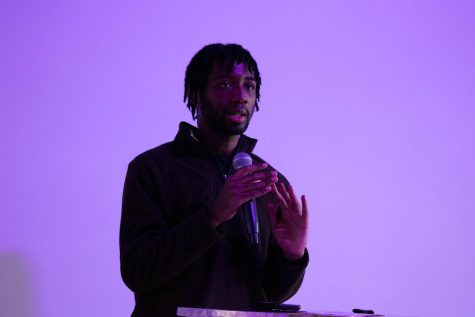
Joel Kemegue reciting a poem that won him Campus Civic Poet. Tuesday, Jan. 17, 2023.
Kemegue is a senior creative writing major at WSU and helps out Lowery as vice president.
“I’m helping the president, I’m just helping everybody manage their own. I try to just pick up the slack wherever there is slack. I just try to make sure things are moving smoothly,” he said.
He participated and contributed to various events, one of which is VIBES, an event put on by the AASC to bring high schoolers across Washington to introduce them to WSU and the resources the school has to offer, Kemegue said.
The second is Soul Food Sundays, where food is prepared for all members of the AASC on occasional Sundays. The Black Student Union also mentors freshmen mentees and shows them the resources the campus has to offer.
Kemegue is also the 2023 Campus Civic Poet. This is an award entitled to students by the WSU English department for poetry submissions about civil change.
For his Campus Civic Poet submission, he wrote about issues in the world and how to tackle them through poetry.
Kemegue said a few of his poems that he won the award for tackled his relationship with his father, masculinity and mental health.
“I used to write poetry about stuff that I think is wrong with the world, and stuff that I think could be fixed and put all my different thoughts about it into a poem, and just hope that gets out and that it makes sense to people,” he said.
The main series of poems he wrote is titled “Afrocentric Studies.” Each was titled after a different subject such as “Afrocentric Studies: Overview,” and “Afrocentric Studies: Geography,” Kemegue said.
Afrocentric Studies: Overview, by Joel Kemegue
1.
the first lesson is /blk/ students learn a new lesson
every day like
one in my /class/ sees /blood/ on her text
books but that’s just
because a previous student /owned/ it
one student fails /every/test/
because he can’t memorize /every/
/name/ the lesson being he will fail
/every/test/ they
are always adding names &
making bloody textbooks
the /first/ lesson is afrocentric studies is /relentless/
when they are pounding yr head so
hard the next /seven/ generations feel it/it feels
like it goes on forever
Kemegue said he strived for Black Excellence during his freshman year, wanting to be just like his Black icons.
“I definitely used to want to be the embodiment of Black Excellence, especially in literary terms. Like I talk about James Baldwin, I wanted to be him, I wanted to be out there speaking, getting a Nobel prize, Pulitzer, and all these different awards,” he said. “I wanted to be the next Toni Morrison and write these massive books that talk about racism and Black history and Black culture.”
Kemegue said he wants to inspire others when it comes to poetry.
“Being Campus Civic Poet and being a part of BSU, I’m spending more time being amazed by other people. I’m more concerned about catching up to all these amazing people, just doing the best poetry I can and hopefully a couple of people read my poems and get inspired and they write their own poems,” he said.
Lowery said she leaves POC and multicultural communities at WSU with advice about how to represent themselves.
“Advocate for yourself because your voice is important, a word of advice for Black students, Black women and students of color minorities—speak up because your voice matters and if they don’t listen continue to speak up, there will be times when you feel like you aren’t being listened too, but your words are so powerful, and you have a lot to contribute,” Lowery said.

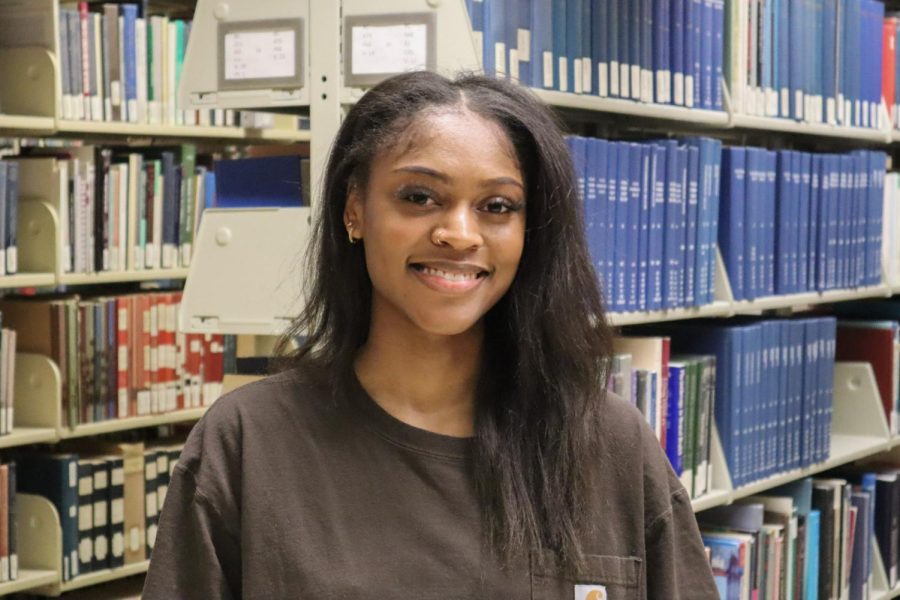
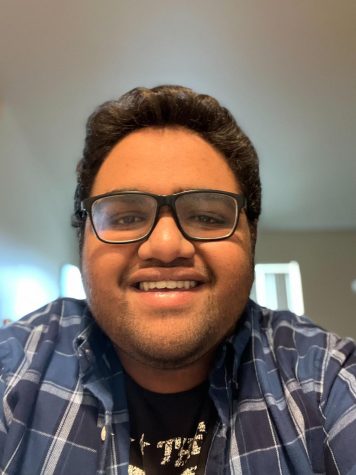
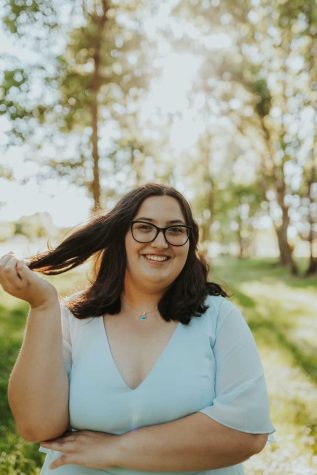








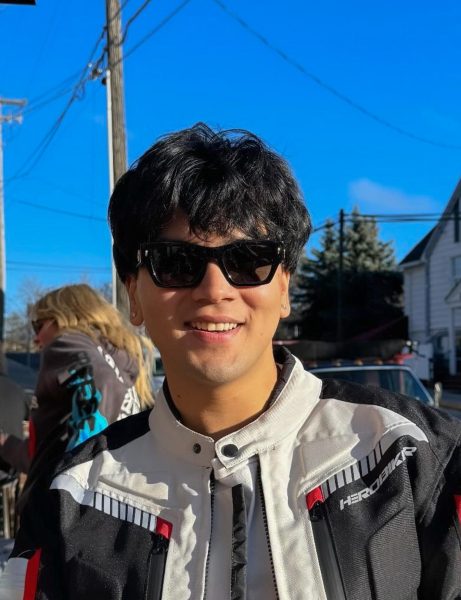


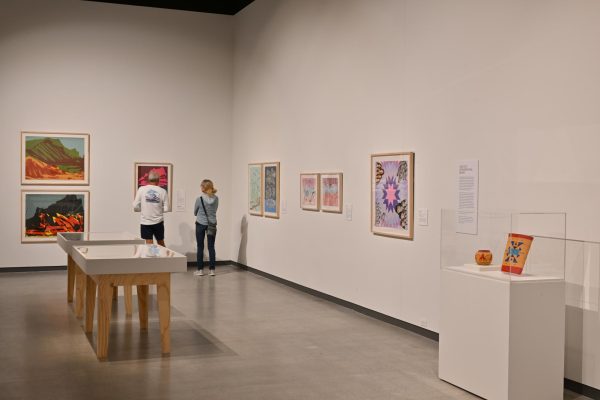
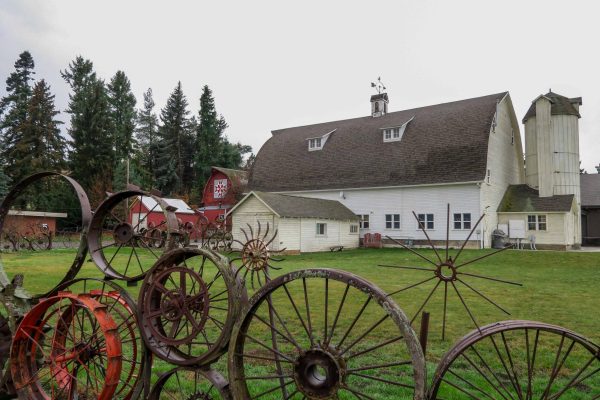
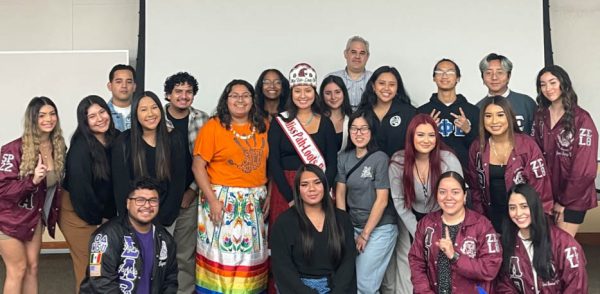


Sharon Martin • Feb 16, 2023 at 1:16 pm
Congratulations to You Amari ,what a Great accomplishment. From the be beginning you have shown all the attributes of the first word of your name given to you. Amari Greek for “eternally lovely, the possessor of strength in Swahili ,protector and power builder in Arabic but the most cherished of all “Promised by God” in Hebrew. In Jesus word ( but, with God All things are possible). I see You shining.. AMARI. Much Love.